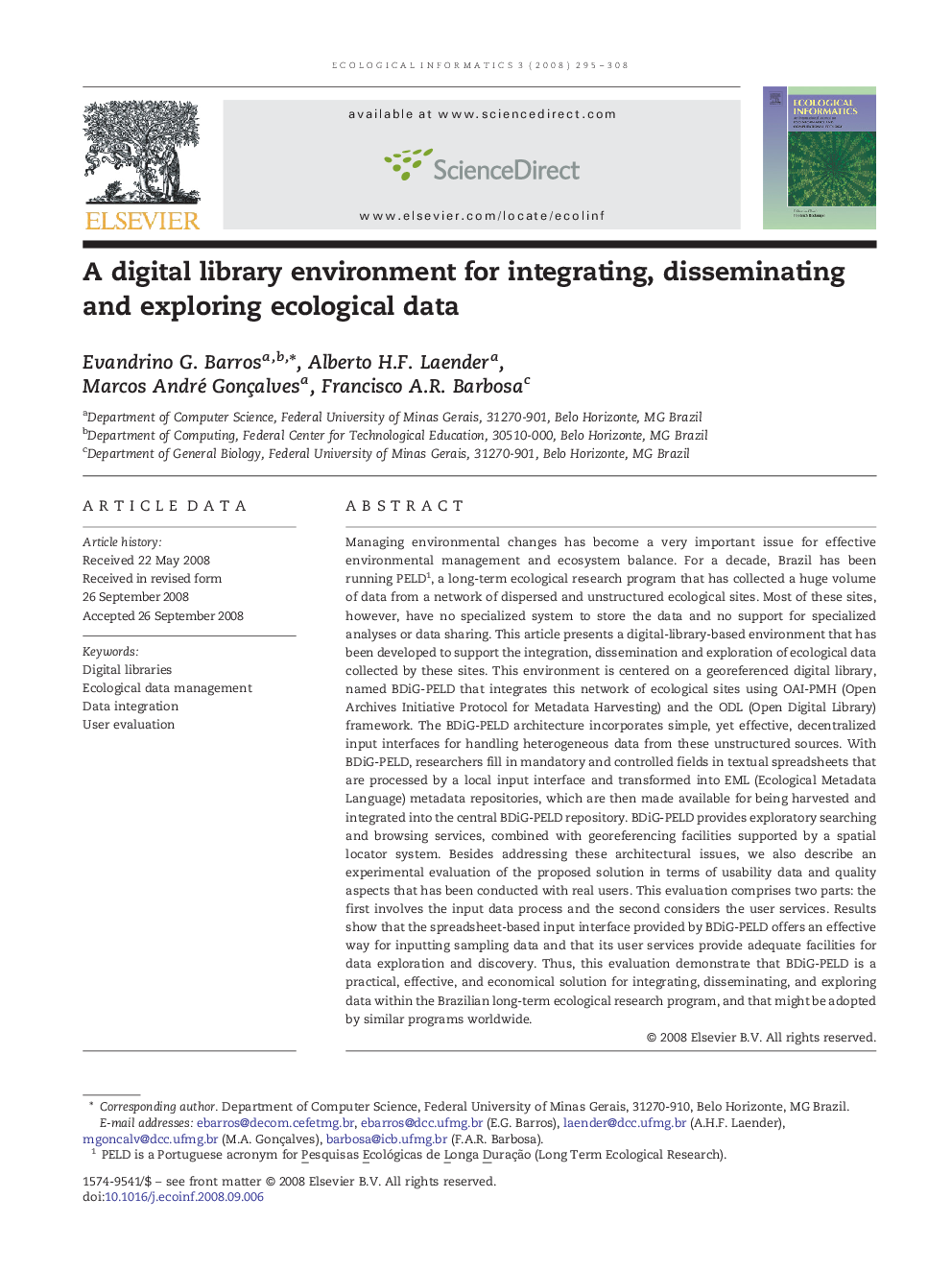| Article ID | Journal | Published Year | Pages | File Type |
|---|---|---|---|---|
| 4375394 | Ecological Informatics | 2008 | 14 Pages |
Managing environmental changes has become a very important issue for effective environmental management and ecosystem balance. For a decade, Brazil has been running PELD1, a long-term ecological research program that has collected a huge volume of data from a network of dispersed and unstructured ecological sites. Most of these sites, however, have no specialized system to store the data and no support for specialized analyses or data sharing. This article presents a digital-library-based environment that has been developed to support the integration, dissemination and exploration of ecological data collected by these sites. This environment is centered on a georeferenced digital library, named BDiG-PELD that integrates this network of ecological sites using OAI-PMH (Open Archives Initiative Protocol for Metadata Harvesting) and the ODL (Open Digital Library) framework. The BDiG-PELD architecture incorporates simple, yet effective, decentralized input interfaces for handling heterogeneous data from these unstructured sources. With BDiG-PELD, researchers fill in mandatory and controlled fields in textual spreadsheets that are processed by a local input interface and transformed into EML (Ecological Metadata Language) metadata repositories, which are then made available for being harvested and integrated into the central BDiG-PELD repository. BDiG-PELD provides exploratory searching and browsing services, combined with georeferencing facilities supported by a spatial locator system. Besides addressing these architectural issues, we also describe an experimental evaluation of the proposed solution in terms of usability data and quality aspects that has been conducted with real users. This evaluation comprises two parts: the first involves the input data process and the second considers the user services. Results show that the spreadsheet-based input interface provided by BDiG-PELD offers an effective way for inputting sampling data and that its user services provide adequate facilities for data exploration and discovery. Thus, this evaluation demonstrate that BDiG-PELD is a practical, effective, and economical solution for integrating, disseminating, and exploring data within the Brazilian long-term ecological research program, and that might be adopted by similar programs worldwide.
